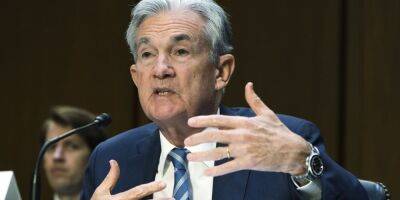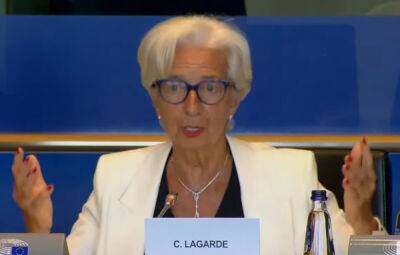Why are central banks pushing to raise interest rates?
Central banks around the world are pushing for the sharpest rise in interest rates in decades in response to soaring inflation.
With living costs across advanced economies rising at the fastest annual rate since the 1980s, the US Federal Reserve, Bank of England and European Central Bank are taking aggressive action to cool inflationary pressure.
However, there are risks for households and businesses as economic growth falters. Here are the reasons rising rates matter:
The impact of the Covid pandemic, supply chain disruption, worker shortages and Russia’s war in Ukraine driving up energy prices has fuelled a dramatic surge in the rate of inflation over recent months.
Across the OECD group of wealthy nations, inflation has reached 9.2% – the highest since 1988. Britain has the highest rate in the G7 group of rich countries – the UK, US, Canada, France, Italy, Germany and Japan – with the consumer price index (CPI) measure of inflation hitting 9% in April, the highest since 1982.
Central banks have mandates from their national governments to target low and stable inflation, typically of around 2%, while also bearing in mind the strength of the economy and outlook for jobs.
The Bank of England is widely expected to raise its base rate by 0.25 percentage points to 1.25% on Thursday for the fifth consecutive time.
The US Federal Reserve raised interest rates by 0.75 percentage points on Wednesday, to a range between 1.5% and 1.75%. It was the largest hike since 1994 in response to US inflation which soared to a 40-year high of 8.6% last month.
The European Central Bank plans to raise interest rates in July and September, after announcing that it would halt its quantitative easing bond-buying programme next month.
Inflation measures
Read more on theguardian.com



















